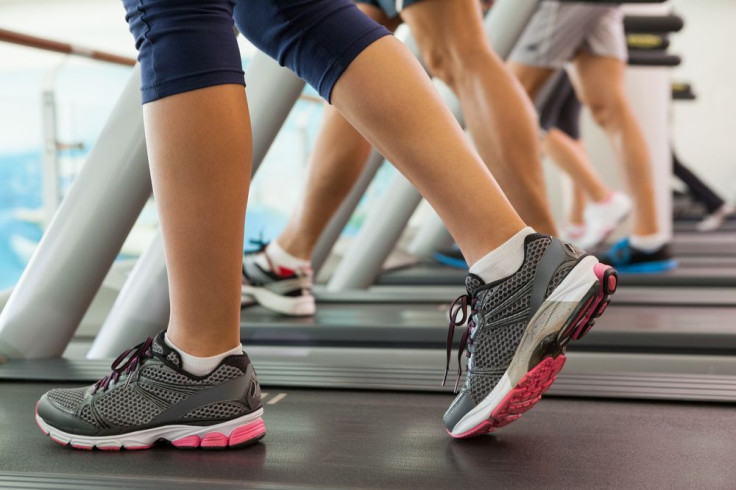Best Workout Apps Match And In Some Cases Outperform Top-Selling Wearable Devices

Feeling bad about not buying a wearable pedometer and purchasing a new (unnecessary) sweater instead? Well, rid your mind of that guilty thought immediately. A new study from the University of Pennsylvania finds most smartphones apps are just as accurate as wearable devices when it comes to tracking your steps, and in some cases, even more so.
Nearly two-thirds of all adults in the United States own a smartphone, which offers a variety of health apps. Potentially, then, most adults already own all the tech they need to track changes in their exercise routine. For this reason, researchers from UPenn's Perelman School of Medicine decided to investigate how smartphone apps stack up against wearable tech devices. In particular, the research team focused their study on step count apps. Because makers of devices often use step counts to derive other measures of physical activity — such as calories burned or distance — any deviation from accuracy is important, since it may lead to imprecision in these other scores.
To begin their study, the researchers recruited healthy adults to walk on a treadmill set at three mph for two rounds each of 500 and 1500 steps. Nearly three quarters of the recruited participants were female, average age of 28. Then, the researchers selected 10 top-selling smartphone applications and devices and adorned each participant with all of them.
Imagine the sight: On their waistbands, the participants wore the Digi-Walker SW-200 pedometer (Yamax), and two accelerometers: the Zip and One (Fitbit). On their wrists, they wore three wearable devices: the Flex (Fitbit), the UP24 (Jawbone), and the Fuelband (Nike). In one pants pocket, they carried an iPhone 5s (Apple), which was simultaneously running 3 apps: Fitbit (Fitbit), Health Mate (Withings), and Moves (ProtoGeo Oy). In the other pants pocket, they carried the Galaxy S4 (Samsung) running a single Android app: Moves (ProtoGeo Oy).
At the end of each trial, the researchers recorded all step count information from each device. In total, the researchers collected 552 step count records from 14 participants in 56 walking trials. Comparing each device or app against the manual count, the average difference in number of steps ranged from −0.3 percent to 1.0 percent for the pedometer and accelerometers, −22.7 percent to −1.5 percent for the wearable tech devices, and −6.7 percent to 6.2 percent for smartphone applications.
“Our findings may help reinforce individuals’ trust in using smartphone applications and wearable devices to track health behaviors,” wrote the authors in their research letter. You already own everything you need, time to use it to remain or get healthy.
Source: Case MA, Burwick HA, Volpp KG, Patel MS. Accuracy of Smartphone Applications and Wearable Devices for Tracking Physical Activity Data. JAMA. 2015.
Published by Medicaldaily.com



























